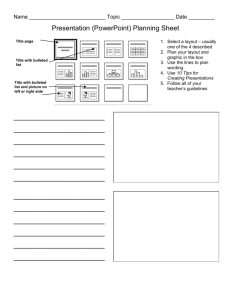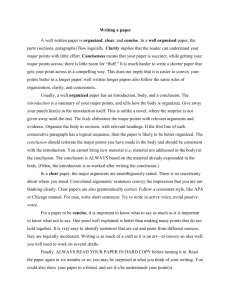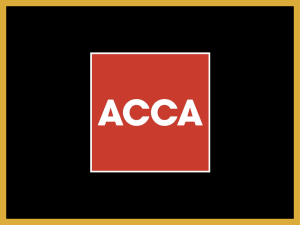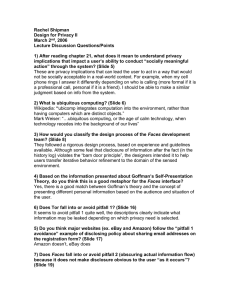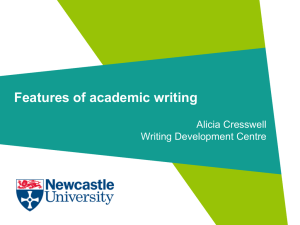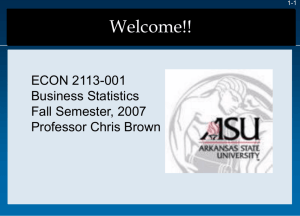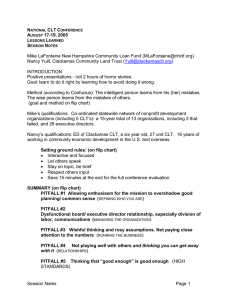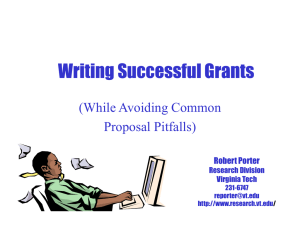Midterm Study Guide
advertisement
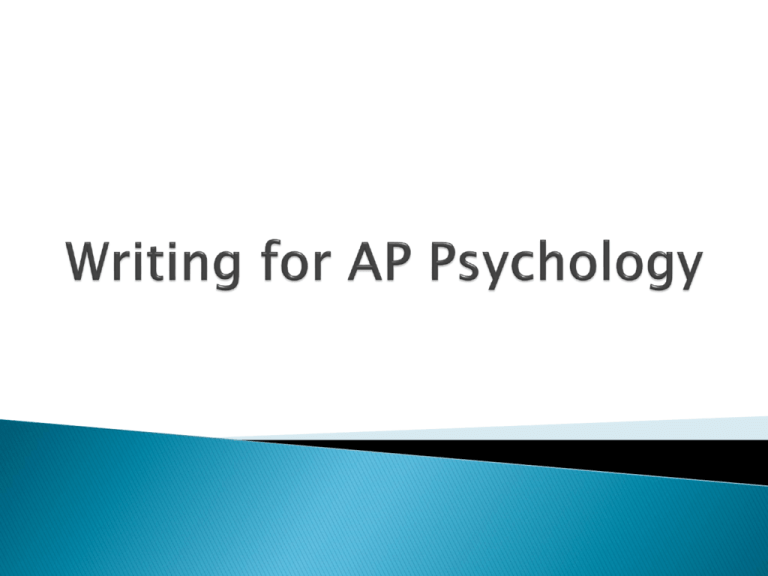
Different style of writing ◦ Still need good basic: grammar and complete sentences ◦ BUT…writing should be concise, direct, & to the point Goal of writing ◦ Test whether students can synthesize concepts and apply them to particular situations Identify verbs in the question ◦ Identify, describe, & define require definitions or examples to define the concepts ◦ Explain, analyze, and discuss require applications of the concepts to the situations within the question. Do NOT parrot the language...extend beyond the wording of the question Use line spacing or a separate paragraph for each concept No Intro, No Conclusion (unless specifically asked for in the prompt) OUTLINES, GRAPHICS, OR BULLETED LISTS WILL NOT BE GRADED! ◦ You can use bullets to differentiate between concepts, but wording after must be complete sentences Use Psychological vocabulary, the proper theories and proper theorists. Support EVERYTHING with an example: preferable from your coursework (not your personal life) ◦ Clearly State whether your example is supporting or contrasting Be clear, concise and to the point…NO FLUFF Do not say anything that can be misconstrued (i.e. no pronouns, no ambiguous concepts, etc.) Do not write everything you know about the topic…stay focused on the question. Do not begin writing until you have a clear idea of what you are going to write ◦ Make a short outline first. Pitfall #1: 2 types of questions: general and specific ◦ General=lots of related concepts ◦ Specific=fewer concepts but more in depth. ◦ Do not dwell on what you don’t know, focus on what you do know Pitfall # 2: Readers cannot infer answers ◦ If the students seems to know the answer, but does not use proper phrasing, points will not be awarded
